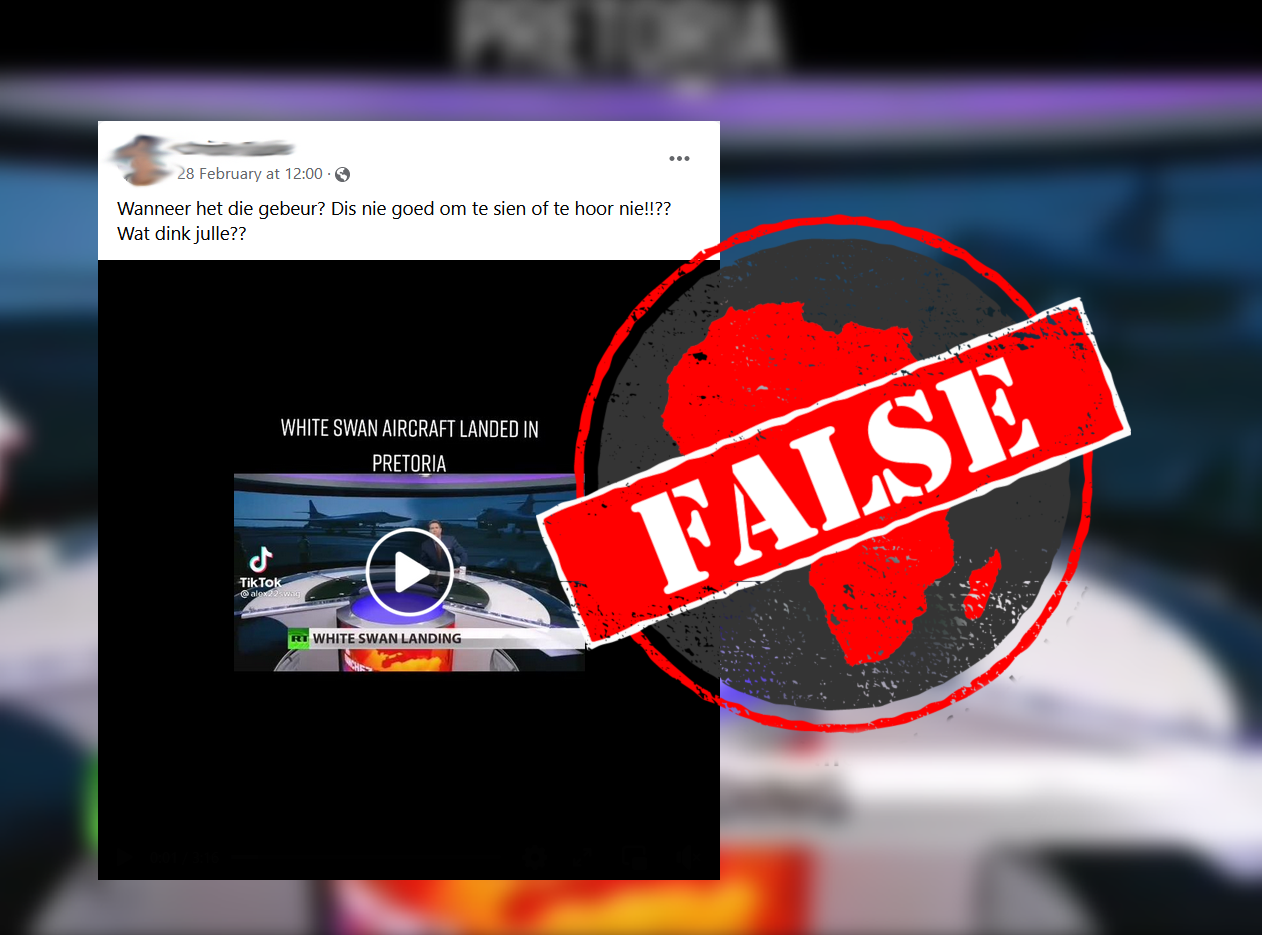On 24 February 2022 Russia launched a massive new invasion of its neighbour, Ukraine. The ensuing conflict has dominated world news and seen over a thousand civilian casualties and reports of more than 1.7 million people fleeing the country.
Like all major breaking news events, the war has generated plenty of misinformation. One example is a video recently posted on Facebook. It appears to show a report on two Russian strategic bomber jets landing in Air Force Base Waterkloof, a military airbase in Pretoria, South Africa. The post has gained widespread attention in the country, attracting almost a million views in just a few days.
The video’s description reads, in Afrikaans: “Wanneer het die gebeur? Dis nie goed om te sien of te hoor nie!!?? Wat dink julle??” This translates as: “When did this happen? It’s not good to see or hear. What do you think?” Against the backdrop of the war in Ukraine, the post implies that the event took place recently. But is this accurate?

‘Mutually beneficial partnerships’
An internet search revealed that the jets landed on 23 October 2019. Footage of the event was posted on YouTube in 2019, receiving wide international news coverage.
The landing had been announced by the South African National Defence Force (SANDF), who posted photos of it on Twitter.
Russian Federation (AFRF) during their visit in the Republic of South Africa (RSA).
— SA National Defence Force (@SANDF_ZA) October 23, 2019
The air arsenal of the AFRF such as the Antonov-AN124, the “Black Jack”, TU-160, IL 62 Illussion amongst others landed at SA Air Force Base Waterkloof.#sandf#sandf_19#SAAirForce_19 pic.twitter.com/c5JlFXGbQC
The SANDF said in a media invite that the visit was part of “fostering mutually beneficial partnerships” between the two countries, “based on common interests”.
Tips
- Searching online for keywords – for example, here “Russian planes land in South Africa” – is often all that is needed to find out more about a video, especially if it is of an event widely covered by news media.
- When trying to determine whether a video is from a particular point in time, there are often clues to be found in the footage itself. For example, in this clip none of the SANDF members, media and others shown are wearing masks, indicating that the video may have been filmed before the Covid-19 pandemic.
Republish our content for free
For publishers: what to do if your post is rated false
A fact-checker has rated your Facebook or Instagram post as “false”, “altered”, “partly false” or “missing context”. This could have serious consequences. What do you do?
Click on our guide for the steps you should follow.
Publishers guideAfrica Check teams up with Facebook
Africa Check is a partner in Meta's third-party fact-checking programme to help stop the spread of false information on social media.
The content we rate as “false” will be downgraded on Facebook and Instagram. This means fewer people will see it.
You can also help identify false information on Facebook. This guide explains how.


Add new comment